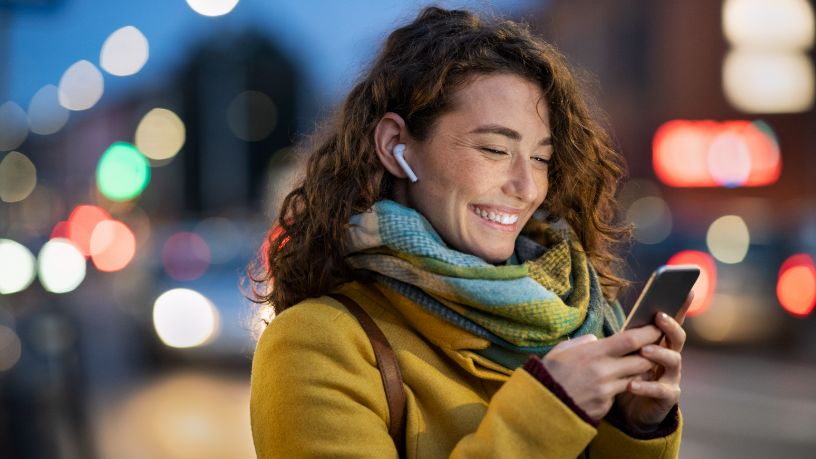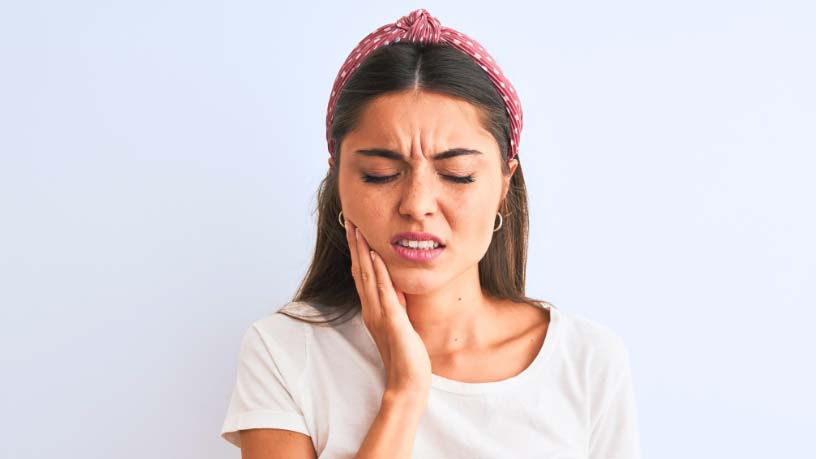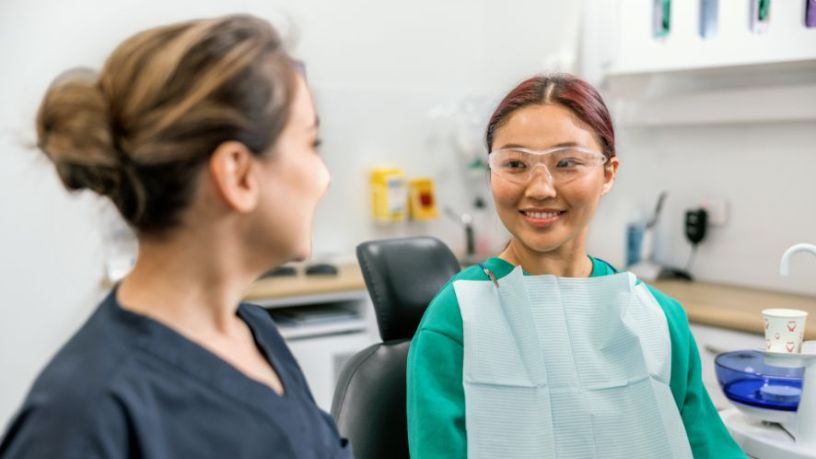You need to be cautious when buying home whitening kits, especially on the internet.
On this page
Key takeaways
There are certain ingredients you should look out for if you’re buying a kit.
Having a whitening treatment at a dentist can be much more effective.
Bright white teeth might be the norm in Hollywood and on social media, but is it actually safe to whiten your teeth at home?
“There are 2 things to consider when it comes to shop-bought home whitening kits,” says Head Dentist at Bupa, Dr Cathryn Madden. “You need to think about the safety aspect, then you need to think about the efficacy of doing this procedure at home.”
First and foremost, warns Dr Madden, is to never buy any home whitening kits off the internet.
“You don't know exactly what's in them, or if they actually contain the ingredients they say they do.”
If you’re considering whitening your teeth, you should always talk to a dentist first.
“Not everyone is suitable for tooth whitening,” says Dr Madden. “If you have veneers or crowns on your teeth, they won’t change colour when they’re whitened.”
So, before you spend a lot of money on whitening products, check with your dentist who can advise you accordingly.
Lastly, be aware that shop-bought home whitening kits won’t ever be as effective as treatment your dentist can provide.
“There’s a limit to how strong the products are that you can buy off the shelf,” says Dr Madden. “You’ll receive more efficient whitening gels and be advised on the safe use of them if you have it done under a dentist’s guidance.”
What ingredients should I look for?
“Hydrogen peroxide and carbamide peroxide are both common ingredients in whitening strips and toothpastes,” says Dr Madden. “They often come in different concentrations.”
“This is another reason you should talk to your dentist before embarking on a home whitening treatment. If you have sensitive teeth, they’ll be able to advise what concentration of peroxide might work best for you.”
Can I do any damage with home whitening kits?
“Whitening kits often work by putting a thin tray or impregnated strip containing the peroxide gel over your teeth,” says Dr Madden. “If the concentration of peroxide being used is high, and the gel comes into contact with any of the soft parts of your mouth, such as your lips or gums, it can cause a chemical burn.”
“If you’re applying the wrong amount of peroxide and in the wrong place, it can cause quite a nasty injury.”
“When you have whitening treatment done with the dentist, those trays are custom made for your teeth. This ensures the peroxide only goes on your teeth because the tray fits you perfectly.”
Is whitening toothpaste a good alternative?
“Often, whitening toothpastes don’t contain any peroxide, and are just abrasive and gritty,” says Dr Madden. “This can mean they’ll remove coffee stains or anything external on your teeth, but they won’t actually lighten the colour of your teeth.
“There’s a bit of a risk with these types of products if you use them long-term. They could potentially abrade some of the enamel on your teeth if not used correctly.”
It’s also important to talk to your dentist before changing your toothpaste.
“You might be someone who needs more fluoride in their toothpaste due to being at a higher risk of tooth decay, rather than focusing on the cosmetic appearance of your teeth,” says Dr Madden. “Not many of these products tick all the boxes, so it’s [important to find] the right balance for you.”
Other things to consider
Teeth come in different colours. “The teeth of someone with a tanned complexion will appear whiter than someone with red hair who has very pale skin,” says Dr Madden.
Teeth can also look more yellow as you age, she adds.
“The enamel covering your teeth naturally thins as you get older. The layer of tooth underneath the enamel is a slightly darker colour, so your teeth will start to appear more yellow than white.”
What happens after a tooth whitening treatment?
“Your teeth might look whiter, but that doesn’t make them any less immune to decay or gum problems,” says Dr Madden. “The same oral health rules apply after a tooth whitening treatment: Brush twice a day, floss every day, maintain a healthy, balanced diet and drink lots of water.”
If cosmetic results are important to you, limit [things] that might cause staining on your teeth such as coffee, tea, red wine and smoking.

At Bupa, trust is everything
Our health and wellbeing information is regularly reviewed and maintained by a team of healthcare experts, to ensure its relevancy and accuracy. Everyone's health journey is unique and health outcomes vary from person to person.
This content is not a replacement for personalised and specific medical, healthcare, or other professional advice. If you have concerns about your health, see your doctor or other health professional.
You might also like...
How to look after your teeth as you get older
Your oral health can change as you age. Here’s what you can do to look after your teeth and gums.
The importance of oral hygiene
Bupa dentist Dr Malcolm Duff explains why looking after your teeth and gums should be an important part of your daily routine.
Bruxism: The teeth disorder you might be sleeping on
If you’re having trouble sleeping, your teeth might be to blame. Find out how bruxism may be affecting you.
Visiting a dentist in Australia
Regular dental check-ups are an important part of maintaining a healthy smile. Discover 6 things you should know about visiting a dentist in Australia.





